
- Appointments
- Awards
- Bills & Acts
- Books & Authors
- Committees
- Deaths
- Defence
- Economic
- Environment
- Banking and Finance
- Important Days
- International
- Miscellaneous
- National
- Persons in News
- Places in News
- Regional
- Reports
- Resignations & Retirements
- Science & Technology
- Sports
- January 2020 - Exams Resources
- Current Affairs - Quiz
- Current Affairs - Test
- Current Affairs - PDF
Current Affairs January 2020 - Banking & Finance
1 - RBI launched app to help visually impaired persons
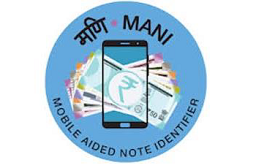
The Reserve Bank launched a mobile application for aiding visually impaired persons to identify the denomination of Indian Banknotes. Mobile Aided Note Identifier - MANI app is capable of identifying the denominations of Mahatma Gandhi Series and Mahatma Gandhi (New) series banknote by checking front or reverse side of the notes, including half folded notes under broad range of light conditions.
RBI has clarified that the mobile application does not authenticate a note as being either genuine or counterfeit.
2 - Piyush Goyal inaugurated NSE Knowledge Hub

National Stock Exchange (NSE) launched an AI-powered learning platform NSE Knowledge Hub. It was inaugurated by Union Minister for Commerce and Industries Piyush Goyal. The NSE Knowledge Hub will curate the content for learners from many internal, external and premium sources for the personalised learning experience.
NSE Academy, a wholly-owned subsidiary of NSE, seeks to collaborate with organisations in the BFSI industry to enhance skills of their employees and academic institutions to prepare future-ready talent for the financial services industry.
3 - IBBI amends the IBBI (Liquidation Process) Regulations, 2016

The Insolvency and Bankruptcy Board of India (IBBI) notified the Insolvency and Bankruptcy Board of India (Liquidation Process) (Amendment) Regulations, 2020. The amendment clarifies that a person, who is not eligible under the Code to submit a resolution plan for insolvency resolution of the corporate debtor, shall not be a party in any manner to a compromise or arrangement of the corporate debtor under section 230 of the Companies Act, 2013.
The amendment also provides that a secured creditor cannot sell or transfer an asset, which is subject to security interest, to any person, who is not eligible under the Code to submit a resolution plan for insolvency resolution of the corporate debtor.
4 - RBI revised supervisory framework for Urban Co-operative Bank

Reserve Bank of India (RBI) has revised supervisory action framework (SAF) for urban co-operative banks. A UCB may be placed under supervisory action framework when its net non-performing assets (NPAs) exceed 6% of its net advances. As soon as this threshold is breached, the regulator may initiate multiple actions, depending on severity of stress.
All primary UCBs are mandated to submit a board-approved action plan for reducing its net NPAs below 6% on quarterly/monthly basis, post-review progress report.
5 - Shivalik Mercantile Co-op gets RBI nod to become SFB
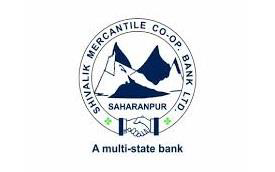
The Reserve Bank of India (RBI) has granted in-principle approval to Shivalik Mercantile Co-operative Bank for transition into a small finance bank (SFB). This is the first licence issued by the RBI to an urban co-operative bank (UCB) to become an SFB since the guidelines came out nearly two years ago.
The UCB will get 18 months to comply with the requirements under the scheme, which state that banks with a minimum net worth of 50 crore and capital to risk (weighted) assets ratio of 9% and above are eligible to apply for voluntary transition to SFB.
6 - RBI amended KYC norms allowing banks to use V-CIP

The RBI amended the KYC norms allowing banks and other lending institutions regulated by it to use Video based Customer Identification Process (V-CIP), a move which will help them onboard customers remotely. The V-CIP will make it easier for banks and other regulated entities to adhere to the RBI's Know Your Customer (KYC) norms by leveraging the digital technology.
The Reserve Bank decided to permit video based Customer Identification Process (V-CIP) as a consent based alternate method of establishing the customer's identity, for customer onboarding with a view to leveraging the digital channels.
7 - SBI announced 'residential builder finance with buyer guarantee' scheme

State Bank of India announced a 'residential builder finance with buyer guarantee' (RBBG) scheme. It aims at giving a push to residential sales and improve homebuyers' confidence.
Under this scheme, the SBI will issue a guarantee for completion of select residential projects to customers who have availed home loans from it. The scheme will focus on affordable housing projects priced up to 2.50 crore rupees in 10 cities. Under RBBG, the guarantee would be given by the bank till the project gets the occupation certificate (OC).
8 - Indian banks to end their operations in Sri Lanka

The Central Bank of Sri Lanka has permitted Indian private sector lenders Axis Bank and ICICI Bank to close their operations in the island nation. The licenses issued by Central Bank of Sri Lanka will be cancelled once the winding-up operations are complete. The two banks are no longer to carry their banking operations, including accepting deposits from the public in Sri Lanka.
Axis Bank is the fifth-largest bank in India offering a wide assortment of financial products. ICICI Bank is the second largest bank in India in terms of assets and market capitalisation.
9 - World Banks 2020 Global Economic Prospects report released

World Banks 2020 Global Economic Prospects report projected Indias growth rate at 5% for fiscal year 2020 due to weakness in credit from Non-Banking Financial Companies (NBFCs). Global economic growth is forecast to edge up to 2.5% in 2020 as investment and trade gradually recover.
Highlights are:
Growth among advanced economies is anticipated to slip to 1.4% in 2020 due to continued softness in manufacturing.
Growth in emerging market and developing economies is expected to accelerate this year to 4.1%.
Euro Area growth is projected to slip to a downwardly revised 1% in 2020.
10 - SBIs report Ecowrap lowered Indias growth rate to 4.6% for FY 2020
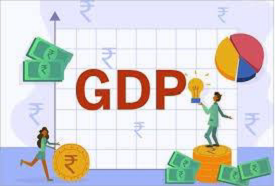
SBI has lowered the growth rate of India to 4.6% in the fiscal year 2020 in its report' Ecowrap'. The report unveiled that agriculture and allied activities are expected to grow at 2.8%, while growth in industry estimated to grow at 2.5% in fiscal year 2020. The service sector is also estimated to increase to 6.9% in fiscal year 2020.
Ecowrap report projected that growth rate will remain below 6% for the two years in a row. SBI research report 'Ecowrap' highlights the impact of the slow growth of the economy on jobs creation.
11 - RBI released National Strategy for Financial Inclusion report
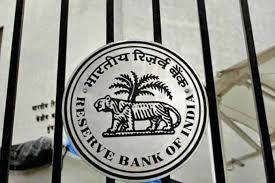
Reserve Bank of India under the aegis of Financial Inclusion Advisory Committee (FIAC) initiated the process of formulation of National Strategy for Financial Inclusion (NSFI) for the period 2019-2024for achieving sustainable development worldwide. NSFI was finalised and approved by the Financial Stability Development Council (FSDC).
The NSFI sets forth the vision and key objectives of the Financial Inclusion policies in India to expand the reach and sustain the efforts through a broad convergence of action involving all the stakeholders in the financial sector.
12 - SCR of Indian Railways signed MoU with SBI
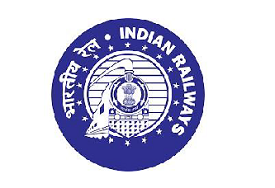
The South Central Zone of Indian Railways signed a Memorandum of Understanding with State Bank of India for Doorstep Banking for direct pickup of earnings covering all 585 Railway stations over SCR Zone. The direct pick up of cash dispenses with the movement of cash earnings through Cash Safes by trains.
Major benefits from the MoU are as follows −
Real time information about the cash being deposited by different stations which will help in better supervision and accountability.
Avoidance of unwanted accumulation of cash at railway stations.
Smart way of remittance of station earnings.
13 - RBI raised the Investment limit for FPIs to 30%
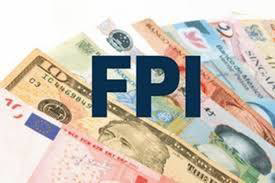
The RBI raised the investment limit for FPIs in government & corporate bonds from 20% to 30% to bring in more foreign funds into the market. Foreign Portfolio Investors (FPIs) can invest now up to 30% in central government securities (including treasury bills) or state development loans or corporate bonds.
RBI made amendments to the Directions governing investment through the Voluntary Retention Route (VRR). The investment cap is increased to Rs. 1,50,000 crores from Rs. 75,000 crores. FPIs are also allowed to invest in Exchange Traded Funds that invest only in debt instruments.
14 - Reliance Jio became 1st Telecom to launch UPI Payments Feature

Reliance Jio launched UPI payments feature through its platform after launching the feature on the MyJio app. With this, Reliance Jio became the first telecom operator to facilitate digital UPI payments through its platform and second among payments banks to have enabled UPI payments service.
Reliance JIO has integrated the UPI option in its main app MyJio, which also accommodates popular apps like JioCinema, JioCloud and JioTV. A user will get virtual payment address (VPA) with UPI handle @Jio after the successful sign-up process. Reliance JIO has over 370 million subscribers.
15 - ICICI Bank introduced cardless cash withdrawal facility through ATMs
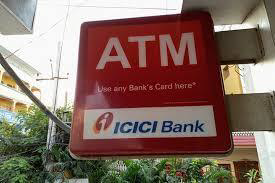
ICICI Bank announced the launch of a Cardless Cash Withdrawal facility from its ATMs. This service enables customers to withdraw cash from over 15,000 ATMs of the bank by simply raising a request on iMobile, its mobile banking application.
The Cardless Cash Withdrawal service can be used for self-withdrawal when customers do not wish to carry the debit card. The daily transaction limit as well as per transaction limit is set at Rs. 20,000. The offering of Cardless Cash Withdrawal from iMobile enables customers to withdraw cash securely for everyday purchases, all from the convenience of their mobile phone.
16 - NPCI launched Blockchain-Based Vajra Platform to Secure Payments

The National Payments Corporation of India (NPCI) launched the Vajra Platform to make payments fast and secure. Vajra is a blockchain-based payments platform. Vajra platform has ability to automate clearing and perform settlement of payments, drastically reducing the need for manual reconciliation with the help of distributed ledger technology (DLT).
Blockchain technology is distributed ledger that records the provenance of a digital asset. DLT will also help the industry in minimising operations and financial risks while making transactions economical, immutable and secure.